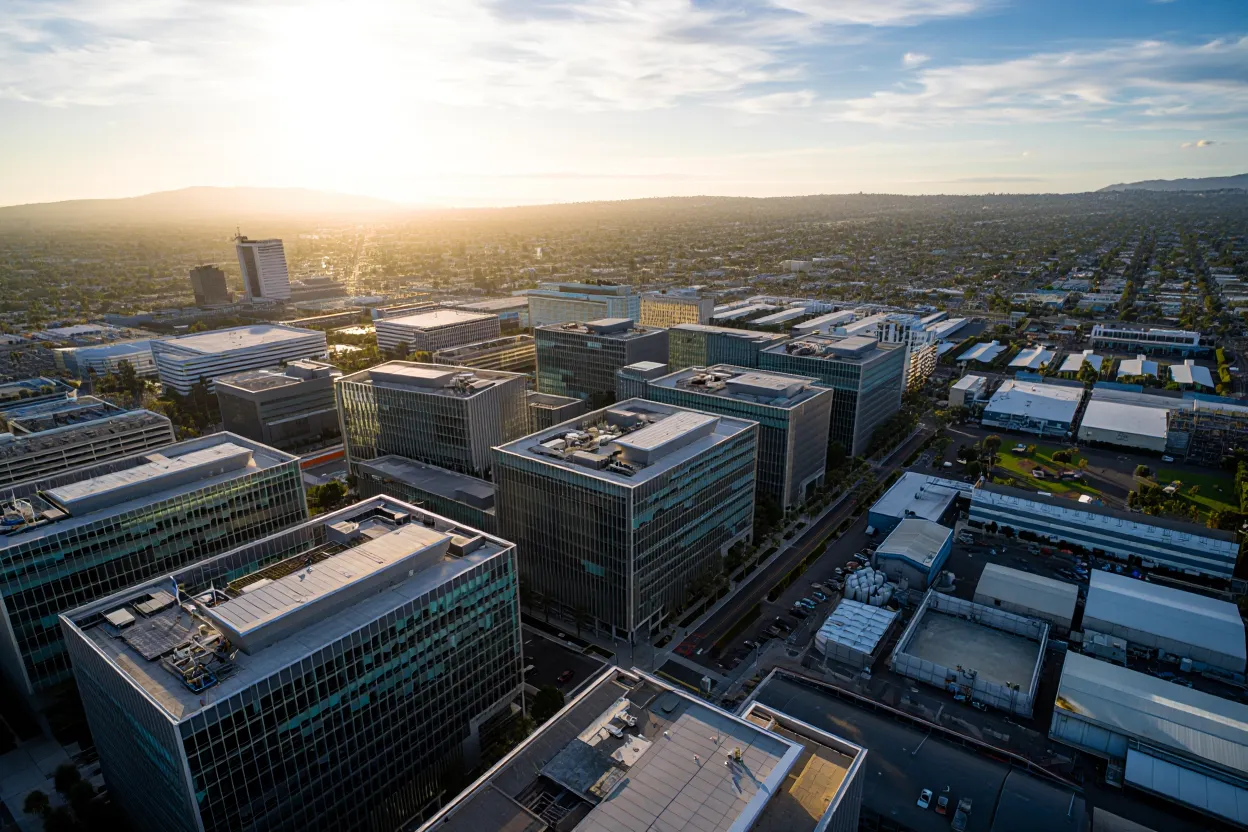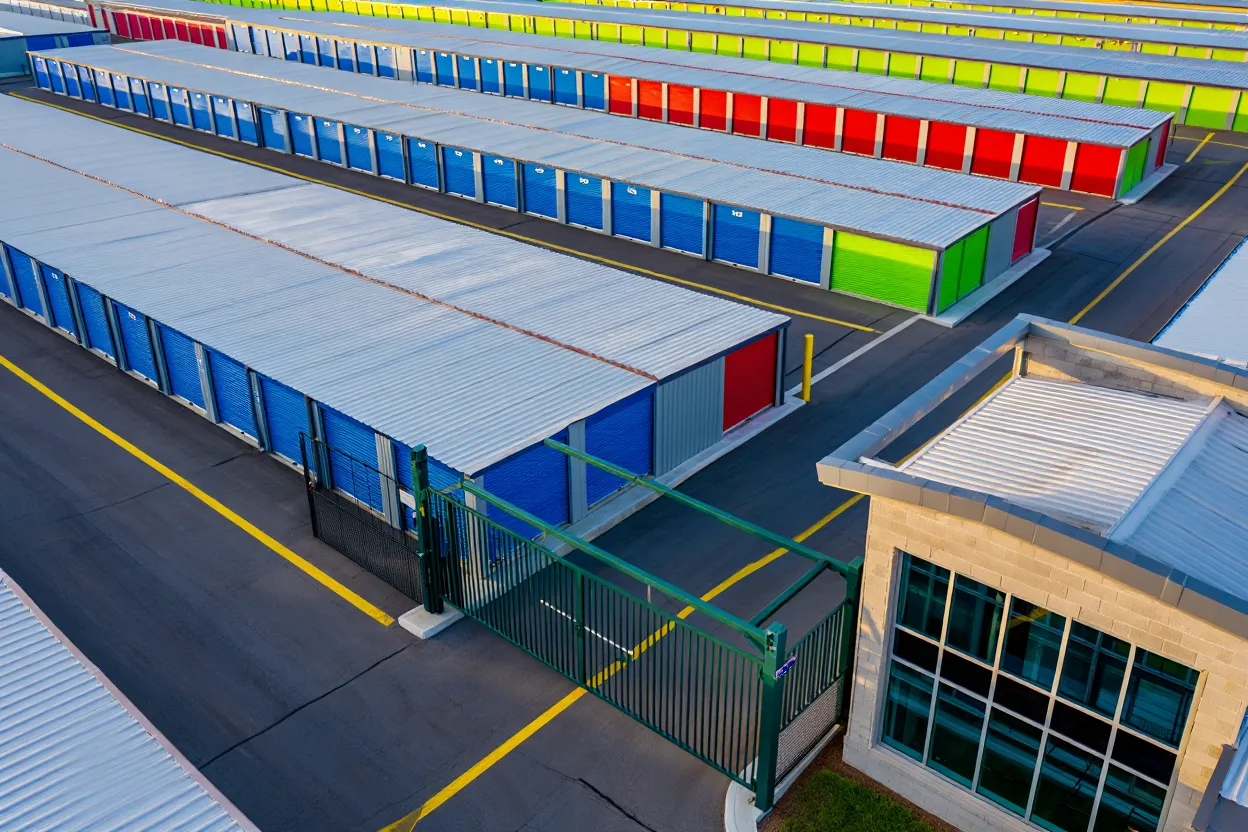- Defense and aerospace leasing surged in 2024, reaching 11.3 MSF — up 60% from 2022 — driven by increased military spending and heightened geopolitical tensions.
- Spy-proof and highly specialized facilities are in high demand, including SCIFs and spaces equipped for drone-proofing and secure communications.
- Defense and aerospace startups raised record funding in 2024, fueling new development and demand in real estate markets near military and research hubs.
- Landlords are investing in converting or building specialized industrial and office spaces to serve this growing tenant base, especially in California, Florida, and Colorado.
War-Fueled Real Estate Boom
As global tensions escalate and defense budgets balloon, aerospace and defense companies are racing to lock in real estate that fits their unique — and often highly classified — needs, according to the NY Times. In 2024 alone, leasing activity in this sector jumped to 11.3 MSF, up from 7.1M in 2022, according to JLL.
That includes everything from sprawling industrial plants with heavy-duty machinery and bullet-testing zones to ultra-secure offices that block surveillance drones and hidden microphones.
The Space Start-Up Effect
One of the most visible players in this trend is Vast, a commercial space station start-up that recently signed a lease for 165 KSF of industrial space in Long Beach, California — a former warehouse retooled for space tech manufacturing. Vast is just one of 274 aerospace and defense start-ups that raised new funds in 2024, per PitchBook data.
Michael Soto, VP of research at Savills, said the commercialization of space — once the exclusive domain of NASA — has unlocked a new frontier of real estate demand. “It’s cheaper for NASA to outsource what they used to do,” Soto said.
Get Smarter about what matters in CRE
Stay ahead of trends in commercial real estate with CRE Daily – the free newsletter delivering everything you need to start your day in just 5-minutes
Safe, Secure, and SCIF-Ready
Perhaps the biggest challenge? Building security. Top-tier facilities, like SCIFs (Sensitive Compartmented Information Facilities), cost over $1M to construct and must meet strict federal regulations — from drone nets on rooftops to preventing “line-of-sight” lip-reading.
Gary Horwitz, managing director at JLL, said the real demand is for “specialized spaces and secure facilities.” Companies like Nooks now offer shared SCIFs, acting as a “WeWork for secure government contractors.”
Hotspots of Activity
Much of the growth is concentrated near talent and military infrastructure. Southern California hosts 145 defense firms leasing 13 MSF. Florida has 17K aerospace-related firms and $5.5B in upcoming space development. The AZ Opportunity Fund is building a new 32-acre aerospace business park in Colorado.
Other big moves include a $2B research campus near NASA’s Ames Research Center in Silicon Valley and the Vandenberg Space Force Base expansion to support more start-ups.
Thinking Smaller, Smarter
While the footprint is expanding, some companies are doing more with less. Start-ups like Mach Industries are leaning on advanced manufacturing tech like 3-D printing to reduce warehouse space and inventory needs. The company expects to produce thousands of drones monthly by mid-2025.
Why It Matters
As the defense sector pivots to fast, tech-driven innovation — and the threat of global conflict remains top of mind — real estate is emerging as a vital piece of national security infrastructure. It’s a rare bright spot for landlords and developers: highly secure, specialized properties attract long-term tenants with deep government backing and rising demand.
Expect the rise of spy-proof, start-up-friendly spaces to continue — with defense tech looking less like war rooms and more like high-tech labs.















